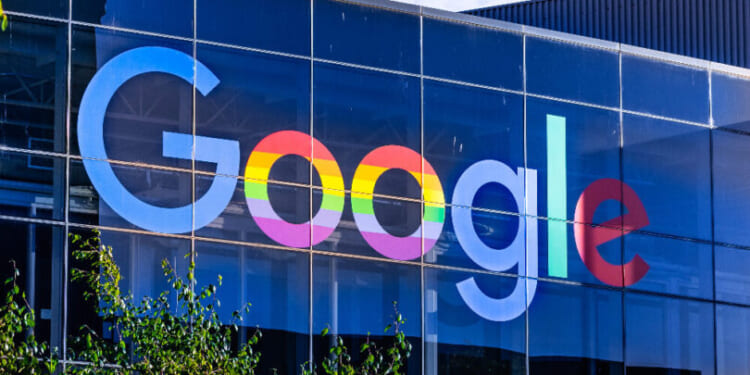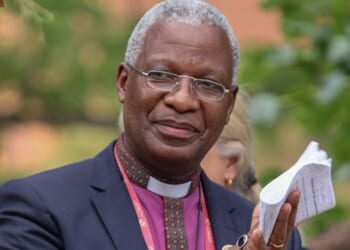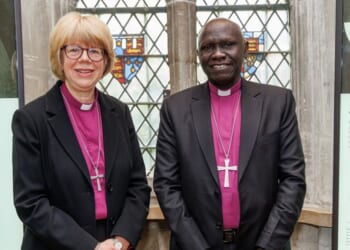(LifeSiteNews) — Influential traditionalist Catholic blog Messainlatino.it has won a legal case against Google after the website was blocked by the tech giant under an apparent breach of the firm’s “hate speech” policy.
LifeSiteNews sat down with the blog’s editor Luigi Casalini, who explained how the case exposes crucial failings of governance online, the dangers of algorithm-driven censorship, and argued the court’s ruling marks a crucial precedent for digital freedom in Europe and beyond.
LifeSiteNews: Luigi Casalini, LifeSiteNews covered the case of the blog Messainlatino.it, which was blocked by Google on July 11, 2025, without clear justification. Now that your blog has won the legal case against the tech giant, we’d like to review the situation with you.
Google justified the removal of MiL on the basis of its “Hate Speech Policy,” yet without identifying any specific content. What has this experience revealed to you about the way Big Tech defines and enforces so‑called “hate speech,” particularly in relation to religious content?
Luigi Casalini: First of all, thank you for giving us the opportunity to share our story with the international audience, and thanks to LifeSiteNews for the attention shown.
For years, the blog Messainlatino.it has been the main, if unofficial (as we are neither Vatican experts nor journalists), point of reference for the Traditional Catholic world in Italy and beyond. In July 2025, we were blocked, receiving only a brief three‑line email – anonymous, at that – informing us of an alleged violation of Google’s policy against hate speech.
However, Google did not specify the exact content of this alleged violation. It was neither qualified, nor quantified, nor described. As later emerged, Google acted in this way in violation of the Digital Services Act, the European regulation that governs, among other things, freedom of expression online.
I would like to emphasize the fact that the email was unsigned. This means that the block came from an algorithm, not from a real reviewer. In doing so, however, Google interrupted an information service appreciated and sought after by countless readers: at the time of the block, we had published at least 23,000 posts! We did not even receive a prior warning message. I would say the seriousness lies in the fact that everything is delegated to an algorithm incapable of truly judging, thus risking the instant erasure of work carried out by real people over many years.
LSN: Your legal victory will likely be described as a precedent for digital freedom in Europe. From your perspective, what principle has the court established that could now protect other religious or conservative media from arbitrary censorship?
Casalini: Thank you for this question because it is truly important. Today, censorship struck Messainlatino.it, but we were supported both legally and in the media. Thanks to this generosity and sensitivity, we managed to win against a Big Tech company like Google. Consider that we received support from Italian and international outlets, and even prompted a parliamentary question in the European Parliament by Paolo Inselvini and in the Italian Parliament by Maddalena Morgante. Tomorrow it could happen to others who may not have the means to prevail against the Goliath of the moment, despite the clarity – as I believe I can say – of European laws regarding online presence and freedom of speech.
I know that law journals have asked to study our case. Thus, the story of Messainlatino.it has certainly set a precedent. It will be up to legal scholars to determine what our experience can teach in order to prevent troubling events of this kind, where an impersonal algorithm can suddenly and indiscriminately silence – let’s be clear – the work and economic freedom of potentially thousands of people.
I would like to add one more thing. Google showed arrogance, but in doing so it also acted rather foolishly. Perhaps it relied too much on its own size. It could have simply unblocked our site without necessarily facing a legal case, but Google chose to consider itself above the law.
These entities are, moreover, so sprawling that we even struggled to understand where [to appeal]. First, we turned to Google’s Italian office, which told us to contact the office in Dublin, Ireland. In Dublin, they wanted to redirect us to the parent company in the United States. At least, if we open a blog on an Italian platform, we know whom to approach if a dispute arises. When we sent the first formal notice, Google completely ignored us. When we initiated the lawsuit, Google opposed us by hiring five lawyers. In three months, we won the case – I dare say, forgive the perhaps bold comparison, quoting St. Paul: hoping against hope.
These multinational entities are faceless, impersonal to a truly disturbing degree. Your opponent is an algorithm, but how does one deal with an algorithm? No one really knows.
It should also be emphasized that several haters contacted us, claiming responsibility for the shutdown of the blog. They stated that they had reported us as “homophobic.” Regardless of the actual relevance of such reports, what is troubling is that the mere intervention of someone who disagrees with our ideas could be enough to trigger the censoring algorithm.
LSN: MiL was removed following the publication of an interview with Bishop Joseph Strickland. Do you believe this episode reflects a growing hostility toward Traditional Catholic teaching in digital spaces? And if so, why do you think this is happening?
Casalini: Google later informed us, once the lawsuit had begun, that the blocking procedure was triggered by a post in which we had published the Italian translation of a letter from Bishop Strickland. In that letter, it was stated, with regard to the female diaconate, that “although women have always held a prominent place in the Church, as martyrs, mystics, and saints, their dignity is not increased by imitating male roles, but by fully living the unique mission given to them by God.”
Google fixated on the meaning of the word “unique,” insisting on interpreting it as “reduced” or “limited,” whereas it is clear – as the judge highlighted – that the intended meaning was “singular” or “privileged.” Note that this particular post containing Strickland’s translated letter has never been restored, even after the legal victory and the blog’s return online.
All of this serves as a warning because if this is considered hate speech, then every time we post a quotation from the papal Magisterium or even from Sacred Scripture, we are committing an act of hate speech. In fact, Google even challenged a post published after the blog was restored, in which we stated that the female diaconate is inadmissible on the basis of documents from the Second Vatican Council, Sacred Scripture, and the Catechism of the Catholic Church. Practically speaking, Catholic doctrine is being banned.
LSN: During the blackout, you received support from several Italian and European politicians, as well as from various outlets, including international ones. Do you see a renewed awareness, even within secular institutions, that religious freedom and freedom of expression have now become converging battles in the digital age?
Casalini: Yes, at least we hope so. I would like to make two reflections. We received enormous support from the press. Paradoxically, the newspapers that defended and supported us were, for the most part, secular outlets. The Catholic outlets that chose to give us a voice were few, and among them was LifeSiteNews. Many important Catholic outlets, however, decided not to cover the matter despite our requests. I believe this is something worth reflecting on.
Secondly, I would like to recall that the vice president of the United States, JD Vance, on February 14, 2025, delivered a now‑famous speech during the Munich Security Conference. In that context, he accused the European Union of a “retreat from freedom of speech” and of suppressing dissenting voices. That such problems exist in our own house is certainly true, but I would also point out that the kind of harassment suffered by Messainlatino.it came from a company based in the United States of America. Perhaps greater attention should also be paid to what happens within one’s own borders?
Finally, I would like to make an appeal to national and supranational legislators: clarify the meaning of hate speech. A religious doctrine, even if firm on certain issues, cannot be considered hate speech. There is a risk that such an interpretation could violate fundamental rights, as the story of our blog clearly demonstrates.
LSN: Looking to the future, what lessons do you feel you can share with Catholic journalists, influencers, publishers, or more generally content creators around the world to safeguard their online presence – both from a technical and moral standpoint – after your experience with Google?
Casalini: A warning is necessary: we are all exposed to a serious risk. National regulations and even supranational ones seem irrelevant in the face of the power of major platforms such as Google, Meta, and others. Their algorithms operate with wide freedom, and just a few reports from lobbies hostile to our ideas are enough to obtain the blocking – or even the removal – of our online presence. A scenario that bears the traits of a true dystopia.
To Catholic creators, I feel compelled to give precise advice: if you suffer censorship, defend yourselves and refer also to our ruling, which has now become an important precedent. Google was ordered to pay legal expenses: a minimal sum for a giant of that size, but nonetheless a significant victory.
Furthermore, I suggest turning toward smaller, perhaps national, platforms, which guarantee conditions less skewed in favor of the host and with which it is easier to interact in the event of legal disputes. Finally, it would be desirable to encourage Catholic entrepreneurs to develop new online platforms: the market seems to offer space and opportunity.

















